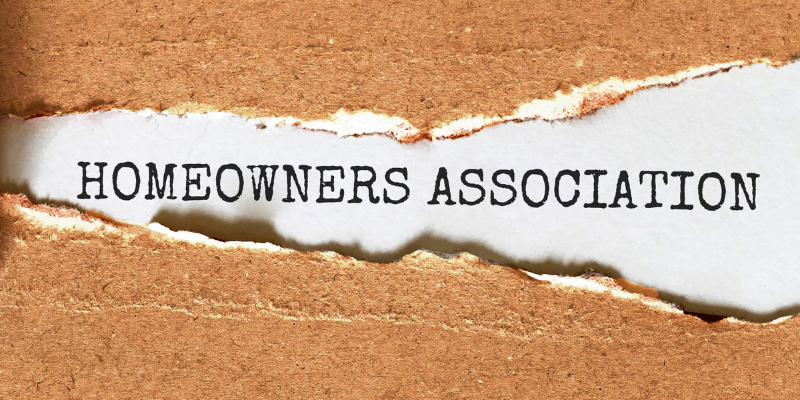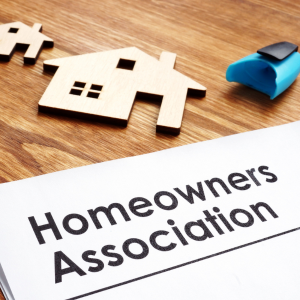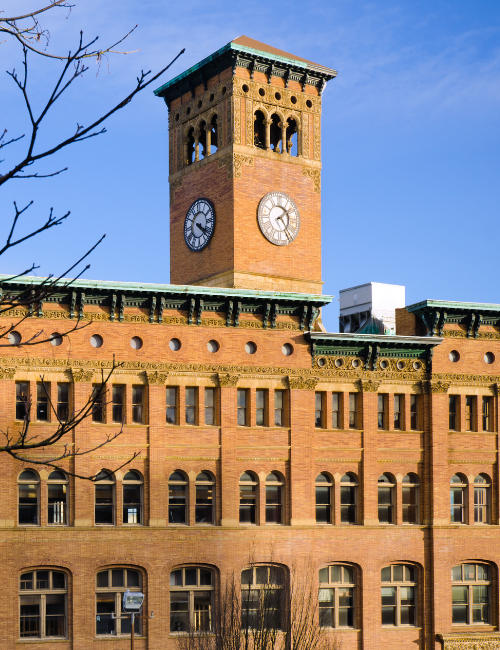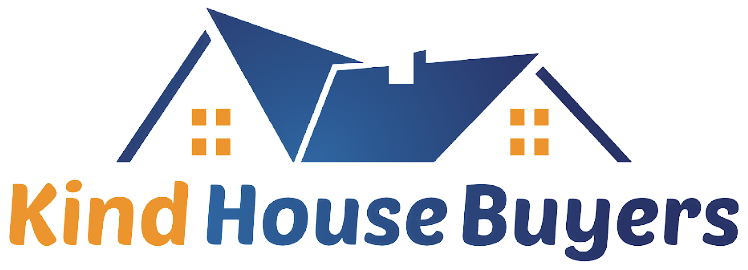
Understanding HOA Fees: A Comprehensive Guide
When you sell a house in Tacoma, you have to pay fees to the Homeowners Association (HOA). They need to know what you want from them during the deal and what their job is. These fees are sometimes split between the customer and the seller based on when the deal goes through.
Most of the time, you have to keep paying the HOA fees until you sell your home for cash in Tacoma, WA. People who buy things pay those fees. That being said, things might be different if the HOA’s rules or the loan deal say otherwise.
Buyers should read these papers carefully to find out about any extra fees or planned fee hikes that could affect how much they pay in the future. At the title, everyone needs to know how these costs will be split and paid for. This is done by a trust officer and a real estate agent.
When you buy a house, you should keep track of your HOA fees, no matter how much or how little you’ve paid. This won’t lead to any fights or misunderstandings when the time comes. If you know these things, buying a new home will be easier and more in line with the rules of the neighborhood.
The Role of Homeowners Associations in Real Estate Deals
People in Tacoma deal with HOAs all the time. After the deal is over, it’s important to know who will pay the HOA fees. These fees should be understood by both buyers and sellers of homes.
Homeowners usually pay HOAs on a regular basis so that they can maintain the shared areas and offer services to the neighborhood. To keep the deal going, find out who still pays the HOA or other fees.
Most of the time, the purchase agreement will say whether these bills will be paid by the seller before the closing or whether they will be split between the buyer and seller based on when each of them gets ownership. When people buy a house, they should look at the HOA papers to see if there are any upcoming assessments or fee hikes that could change how much they pay each month.
It’s very important for agents to make sure that everyone knows how much HOA fees they need to pay during the deal. This also keeps everyone calm, which is important in Tacoma’s real estate market.
Evaluating the True Cost of Homeownership: Including HOA Fees
How much does it cost to own a home in Tacoma? You should add up all the costs that could come up, for instance, the fees for the Homeowners Association (HOA). You should include these costs in your budget from the start because they can add up to a lot of money.
The HOA fees pay for things like pools, landscaping, security, and other fun things that make living in many Tacoma places better. No one needs to pay extra, but everyone involved needs to know who will pay these fees at the end.
To fully understand what the HOA is responsible for, people should read the tiny print and talk to their real estate agent. If there are any fees or other costs that are still due, they should let the buyer know. If there are any, they could change the terms of the deal or make it harder to close.
The cost of living in Tacoma fluctuates with HOA fees. People should know this before they buy or sell a house, as it can make the deal easier and help them decide what to do. Kind House Buyers can help by providing the information and guidance to navigate these costs confidently.
Impact of Unpaid HOA Dues on Real Estate Transactions

People who want to buy or sell a house in Tacoma must know what happens when HOA fees aren’t paid. If the homeowners’ organization (HOA) fees aren’t paid at the closing, it might be hard to close on the house.
Before the deal can go through, you need to pay off these bills that are past due. They leave a lien on the house. People who want to buy something should be aware that these debts could be passed on to them if they aren’t dealt with properly during negotiations or made clear in the purchase agreement.
They should make sure that all HOA fees are paid, though, so that the deal doesn’t get held up or have any other issues. Title companies are very important because they do thorough reviews to find any current liens, such as unpaid HOA dues. So, everything is clear, and there won’t be any more arguments between the two sides.
Mortgage lenders may also want proof that all HOA tasks are met before they give out loans. This is why it’s important to pay any fees that are still due quickly. In Tacoma’s real estate market, knowing these things can help you avoid costs you didn’t expect and make selling a home easier.
Who Is Responsible for Paying HOA Fees During Real Estate Transactions?
Each Tacoma real estate deal has its own rules, making it hard to figure out who pays the HOA fees when the deal is done. The buyer and seller usually split the homeowners association (HOA) fees based on when the deal ends.
Of course, these costs could be split between both sides during the deal. Most of the time, the seller pays any HOA fees that are still owed until the close date. People who buy things take over when the deal is over.
Both buyers and sellers should carefully read the papers. The papers should spell out how the HOA fees will be paid at the finish line. Sometimes, the HOA may have rules or fees that need to be paid before the house can be sold, which can change how the costs are split.
These details must be clear so everyone knows how much they must pay in HOA fees. In Tacoma, real estate managers and lawyers often play a big role.
What Buyers Need to Know About Existing HOA Liens Before Purchase
People who want to buy a house in Tacoma need to know about HOA debts before they sign the papers. When you buy a house, HOA fees are often a big part of the deal. If the fees aren’t paid, liens can happen.
People who want to buy a house should look at the HOA fees that could lead to liens. Most of the time, this means checking all HOA charges with the group or with public records.
If liens aren’t paid off, they may fall on the buyer after the deal is done, which could change their payment and the price of the house. People who want to buy a home in Tacoma should work with their real estate agent and lawyer to understand and settle their HOA duties before the closing. This will help them avoid surprises and follow the city’s real estate rules.
Legal Considerations for HOA Fee Payments at Property Closing
When people in Tacoma buy or sell a home, they must know about the HOA fees they must pay at the closing. When you buy a house, the deal usually spells out who pays the HOA fees.
The buyer and seller usually split the HOA fees so that the dues are paid until the closing. First, buyers should check to see if there are any past-due HOA fees or special taxes before the close. This way, they won’t have to pay any extra money after they buy the house.
Both sides need to look at the sales contract and HOA rules to see if any upcoming assessments or dues could change how much it costs to own a house. A real estate lawyer in Tacoma can help you make sure you’re following the rules and keep you from getting into a fight over late fees.
If both people know these rules, they won’t have to pay HOA fees they didn’t expect when they move.
Essential Tips for Buyers: Managing HOA Fees at Closing
To keep track of their cash, people who buy homes in Tacoma need to know who pays the HOA fees when the deal is done. It is very important to look at the buying agreement and closing papers to see who is in charge of paying the HOA fees.
Buyers should discuss these things with their real estate agent and maybe even a lawyer before they sign. They should also find out about any possible special taxes or increases in HOA fees that could change future costs. If you’re curious about how HOA dues evolve beyond closing-time responsibilities, our latest post on the rise of HOA fees in Tacoma dives deeper into ongoing costs and trends
Getting this information ahead of time could help buyers avoid shocks and get used to living in an area with an HOA. Buyers in Tacoma should pay their HOA fees early on to plan their budgets better and avoid problems after the deal is done.
Sellers’ Guide to Handling HOA Dues Before Closing a Sale

Tacoma home sellers must grasp HOA closing expenses to succeed. Buyers and sellers prorate homeowners’ association dues by the closing date.
Sellers must read and pay HOA dues before selling. Outstanding HOA payments can delay closing or trigger buyer disputes.
An estoppel certificate from the homeowners association identifying outstanding dues, special assessments, and projected fee spikes may help sellers avoid such issues. The article clarifies and ensures transparency during conversations.
Addressing HOA issues and overdue payments may also ease ownership transfer. Manage these parameters to avoid HOA cost shocks for Tacoma home sellers.
Negotiating HOA Fees Between Buyers and Sellers in Tacoma, WA
Buying and selling Tacoma, WA homes requires HOA fee negotiations. Both parties must understand the homeowners’ association fee responsibilities to avoid issues.
Until closing, the seller pays HOA dues; then the buyer does. We can negotiate these terms.
In competitive markets like Tacoma, buyers may ask sellers to cover a portion of future HOA costs as a bargaining chip. If their home is reasonably priced, sellers may pass on any HOA fees.
Realtors explain how HOA fees affect transaction prices and negotiate agreements. Fee structures, special assessments, and imminent hikes may affect negotiations, so buyers and sellers must research HOA papers.
Effective Strategies for Reducing or Negotiating High HOA Fees
Know about and talk about the HOA fees at closing. They can make a big difference in how much it costs to buy a house in Tacoma. Before the deadline, it’s a good idea to read over the HOA’s budget and books carefully.
You can learn more about how money is spent and find methods to lower your costs. It’s important to be open and honest with the neighbor’s group. You might be able to get better terms if you discuss lower fees or payment plans.
Buyers might also want to work with a real estate agent who knows the Tacoma market well and can help them get a better deal. Before you sign, going to HOA meetings can also help you learn about the costs and financial health of the community, which could give you more power when negotiating.
If buyers know these things beforehand, they can negotiate lower or more manageable HOA fees. This will help them save money in the long run when they buy the house.
The Importance of Transparency in Disclosing Outstanding HOA Dues
When you buy a house in Tacoma, you need to know who will pay the HOA fees. Part of the process is being honest about any HOA fees that haven’t been paid. The homeowners’ group is in charge of ensuring that no one has to pay extra fees. This is true for both buyers and sellers.
The deal will go smoothly if both sides are open and honest. They will know what to do to settle the unpaid HOA fees. Sellers must share any fees that are still due quickly. If you don’t tell people about fees, it can make talks harder and closings take longer than planned.
If people want to get a good idea of how much they will have to pay for HOA fees after they buy a house, they should ask about the current rates. Real estate agents are very important in making this open sharing of information possible. They help their clients learn all the important facts about HOA dues.
Making fees clear keeps everyone honest and keeps buyers from paying extra fees they didn’t expect.
Navigating Conflicts Over Who Pays Outstanding HOA Fees at Closing
Who pays outstanding HOA fees at closing in Tacoma real estate deals can be complicated and cause tension. The purchase agreement usually specifies who pays these fees, but confusing terms or unexpected assessments might lead to disputes.
Real estate brokers and attorneys often help resolve these problems by explaining contractual requirements and ensuring buyers and sellers understand their positions. Buyers must check HOA agreements and communicate with agents to determine outstanding costs.
However, sellers should disclose all known obligations to avoid closing surprises. Title companies help by providing detailed payback statements that list delinquent homeowners’ association dues and special charges.
Understanding these components minimizes misconceptions during Tacoma real estate deals and streamlines settlement without HOA fees.
Are HOA Fees Paid at Closing?
Both buyers and sellers in Tacoma real estate transactions must know who pays HOA fees at closing. Prorated HOA fees ensure that everyone pays their fair share.
The seller usually pays HOA dues until closing, then the buyer takes over. This prorated technique smooths homeowners’ association fee payments.
Both parties must carefully analyze the settlement document and confirm any HOA costs at closing. In Tacoma’s volatile real estate market, doing so can help buyers and sellers avoid HOA liability conflicts.
Understanding these details helps the sale go well and maintains excellent relations with the homeowners’ organization after closing.
Who Is Responsible for the HOA Fees?

In Tacoma real estate transactions, understanding who is responsible for HOA fees at closing is crucial for both buyers and sellers. Typically, homeowners’ association (HOA) fees are prorated between the buyer and seller based on the closing date.
This means that the seller is responsible for paying HOA fees up until the day of closing, while the buyer assumes responsibility for these fees from that point forward. However, it is essential to review the purchase agreement carefully, as specific terms regarding HOA fee responsibility may vary.
In some cases, buyers may negotiate with sellers to cover a portion of future HOA dues as part of their overall offer. Furthermore, it’s important to ensure all outstanding HOA fees are settled at closing to prevent any legal disputes or liens on the property.
Working closely with your real estate agent and title company can provide clarity and ensure a smooth transition of financial responsibilities related to HOA fees in Tacoma’s competitive housing market.
What Happens If You Don’t Pay HOA Fees in Washington State?
In Washington state, failing to pay Homeowners Association (HOA) fees can lead to significant consequences for property owners. If you don’t pay your HOA fees, the association may impose late fees and interest charges, increasing your financial burden.
In Tacoma real estate transactions, unpaid HOA fees can result in a lien against your property, which complicates selling or refinancing efforts. Such a lien allows the HOA to initiate foreclosure proceedings if the debt remains unresolved.
It’s crucial for homeowners in Tacoma and throughout Washington to understand these risks and prioritize timely payment of HOA dues to avoid legal complications and protect their property investment. Ensuring that all HOA fees are settled at closing is essential to prevent any disruptions in the transfer of property ownership during real estate transactions.
Need to sell a house in bad condition? Kind House Buyers makes it easy by offering fair cash offers for homes as-is, with no repairs, cleaning, or stress required. Whether you’re trying to avoid costly renovations, sell quickly, or just want a hassle-free sale, we handle every detail for you. Contact us today at (253) 216-2497 for a no-obligation offer and take the first step to sell your Auburn, WA, house faster.
Helpful Tacoma Blog Articles
- Home Sale Contingencies In Tacoma’s Real Estate Market
- Attorney Fees For Home Closings In Tacoma, WA
- Selling A House In Poor Condition In Tacoma, WA, Without Renovations
- Navigating The Sale Of Your Tacoma, WA, Home With An Ongoing Insurance Claim
- Homeowners Insurance When Selling Your House In Tacoma, WA
- Understanding Tacoma, WA, Property Tax Rate
- Fun Facts About Tacoma, WA
- Home Appraisals Before Closing In Tacoma, WA
- Tax Implications For Selling An Inherited House In Tacoma, WA
- Understanding Who Is Responsible For HOA Fees At Closing In Tacoma, WA
- Guidelines For Extended Vacancies In Tacoma, WA, Homes

| HOMEOWNERS’ ASSOCIATION | EXPENDITURES | HOME OWNERSHIP | LOAN | LENDING | APPRAISAL |
| REALTOR | REAL ESTATE BROKERS | MONEY | BROKERS | HOMEBUYING | LOAN ORIGINATION |
| INTEREST PAYMENTS | REDFIN | PROPERTY TAXES | POLICY | TITLE SEARCH | TITLE SEARCHES |
| HOMEOWNERS INSURANCE | HOMEOWNER’S INSURANCE | CREDIT | CUSTOMER | CONCESSIONS | |
| CONDO | INSPECTION | GOAL | CONSUMERS | BOARD OF DIRECTORS | TECHNOLOGY |
| TABLE OF CONTENTS | NORMS | REAL ESTATE CONTRACT | ORGANIZATION | INSURANCE POLICIES | INSURANCE POLICY |
| HOME INSPECTION | FEEDBACK | EXPERT | DEED | BANK | BANKING |
| THE REAL ESTATE | THE SELLER TO | THE BUYER IS | AND THE BUYER | OF THE PROPERTY | FROM THE SELLER |
| TO THE BUYER | PAYS CLOSING COSTS IN | CLOSING COSTS IN WASHINGTON | WHO PAYS CLOSING COSTS | SELLER TO THE BUYER | FROM THE SELLER TO |
| THE SELLER TO THE |
